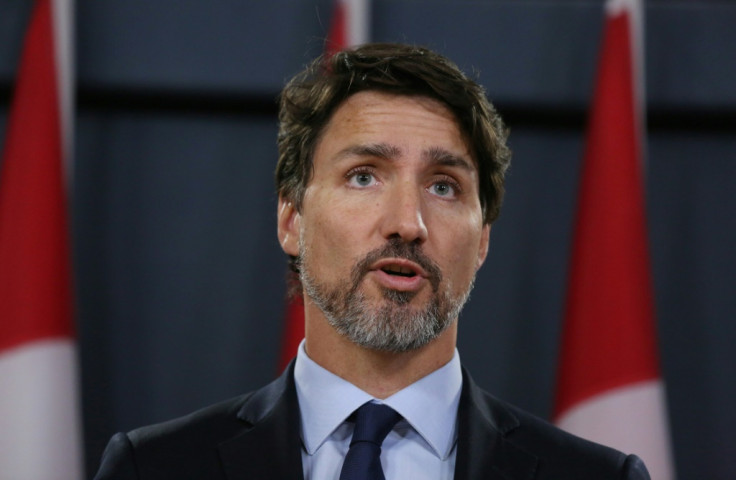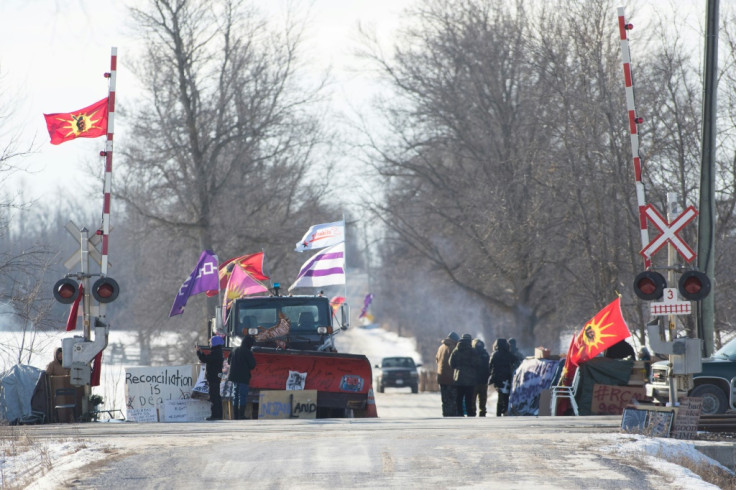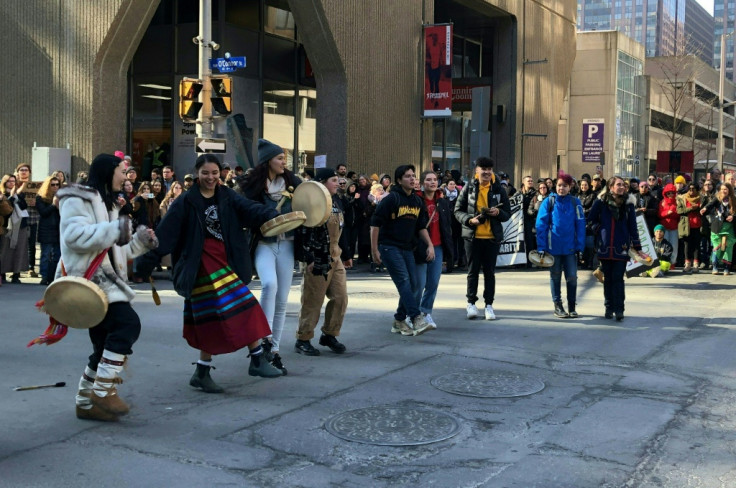Police move in to clear Canada rail blockade
The protesters, confronting Prime Minister Trudeau with a political crisis, had mounted the blockade on a Canadian National Railway line east of Toronto.
Canadian police moved in Monday to clear out indigenous protesters blocking a key east-west rail artery for nearly three weeks to protest a pipeline, causing major disruptions to the economy.
The protesters, confronting Prime Minister Justin Trudeau with a political crisis, had mounted the blockade on a Canadian National Railway line east of Toronto and at other places in support of a small group fighting construction of a natural gas pipeline on indigenous lands in British Columbia.
Ontario Provincial Police began clearing the line at 8:15 am (1315 GMT) Monday after a midnight deadline for the blockade's removal passed unheeded.
"Unfortunately, all avenues to successfully negotiate a peaceful resolution have been exhausted," the police said in a statement as the operation to enforce a court injunction got underway.
Television footage showed dozens of police officers taking protesters away in handcuffs one by one, after a few minor scuffles broke out at the Tyendinaga Mohawk camp.

"This is Mohawk territory you're on. You guys are trespassing," one protestor could be heard shouting to police in a video posted online.
At least six people were detained, according to reports, which said they could be heard singing and banging the inside of a police van.
Meanwhile, fresh protests in support of the Wet'suwet'en hereditary chiefs fighting the Coastal GasLink pipeline popped up in Saskatchewan province and at the Pacific port of Vancouver. Supporters also marched in Ottawa and Montreal.

Trudeau on Friday called the situation "unacceptable and untenable," and said attempts to negotiate an end to the standoff had failed.
His Liberal government has made reconciliation with indigenous peoples a priority.
But the disruptions to rail traffic -- the backbone of Canada's transportation system, moving more than Can$250 billion ($190 billion) in goods annually -- led to supply shortages and job layoffs.
Under pressure to end the crisis, Trudeau sought to establish a dialogue with indigenous leaders but the overtures went unanswered.
He gave up, he said Monday, "when it became clear that the indigenous (protesters) were not prepared to negotiate in good faith with us."

After emergency talks earlier with key ministers and officials, Trudeau's office said measures were being taken to cool tensions and restock depleted supplies. These included propane, chemicals to treat drinking water, and food transported by rail.
"The barricades had to come down because it was having a profound effect on the economy," Transport Minister Marc Garneau said as he left the meeting.
He assured, however, that the government remains committed "to sitting down and having a dialogue over the specific problems that exist at the moment with the Wet'suwet'en."
In parliament, opposition parties criticised Trudeau for not acting sooner to end the blockades.
"The problem is now there is a clear playbook for radical activists to follow and they know that the prime minister will do literally nothing as the economy is brought to its knees," Conservative leader Andrew Scheer said.
Until now, police had been reluctant to use force to dislodge the protesters.
Clashes between police and indigenous peoples in past decades had led to the deaths of a policeman in Oka, Quebec in 1990 and a protester being shot by police in Ipperwash Provincial Park in Ontario in 1995.
"All of these confrontations have been about land," said Kenneth Deer, a Kahnewake Mohawk in Quebec, explaining his community's support of the Wet'suwet'en.
"It's about solidarity among the indigenous people," he said, "because we have that common experience of being dispossessed and disempowered."
On Saturday, the Wet'suwet'en chiefs reiterated their demands that the pipeline construction be halted and federal police leave their ancestral lands as pre-conditions for negotiations.
Officials said the police have been pulled out. But construction of the Can$6.6 billion (US$5 billion) pipeline to transport natural gas to a Pacific coast terminal for shipping to overseas markets continues.
The pipeline, which would run 670 kilometers (416 miles) from British Columbia's Dawson Creek area to Kitimat on the coast, received final regulatory approval last year.
Copyright AFP. All rights reserved.
This article is copyrighted by International Business Times, the business news leader




















